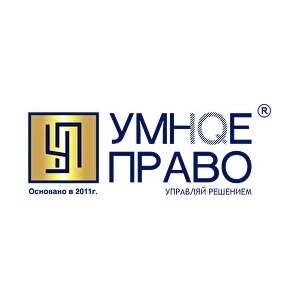Best Private Client Lawyers in Russia
Share your needs with us, get contacted by law firms.
Free. Takes 2 min.
Or refine your search by selecting a city:
List of the best lawyers in Russia
About Private Client Law in Russia
Private Client law in Russia focuses on providing legal services to individuals and families rather than businesses or governmental organizations. This field covers a range of personal legal matters, including estate planning, inheritance, wills, family law, asset protection, tax planning, real estate, immigration, and succession. The main goal is to help clients manage, protect, and transfer their wealth while ensuring compliance with Russian laws and regulations. Lawyers specializing in this area work closely with Russian citizens, expatriates, and foreign nationals who have interests in Russia.
Why You May Need a Lawyer
People may seek the help of a Private Client lawyer in Russia in many different situations, such as:
- Drafting or updating a will to ensure your assets are distributed according to your wishes
- Planning succession of family businesses or significant wealth
- Navigating complex inheritance or probate processes
- Resolving inheritance disputes or family conflicts
- Protecting your assets through trusts, foundations, or other legal structures
- Addressing tax planning and compliance for high-net-worth individuals
- Managing real estate transactions or cross-border property ownership
- Completing marital agreements such as prenuptial or divorce settlements
- Handling emigration, citizenship, or residence permit matters
- Dealing with charity, philanthropy, and donations
A qualified lawyer can help you avoid common pitfalls, minimize tax liabilities, and ensure that your personal affairs are handled efficiently and smoothly.
Local Laws Overview
Key legal principles and rules for Private Client matters in Russia include:
- The Civil Code of the Russian Federation governs inheritance, gifts, wills, family relationships, and asset transfers
- Wills must be made in writing and, typically, notarized to be valid
- Russia follows forced heirship rules - close relatives (children, spouse, parents) are entitled to a mandatory share of an estate even if the will states otherwise
- Succession law applies to all property based in Russia, whether owned by citizens or foreigners
- Tax laws impact inheritance, gifts, and asset transfers, with both personal income tax and property tax considerations
- Inheritance disputes often go through Russian courts, which require compliance with formal procedures and strict deadlines
- Asset protection mechanisms, such as trusts or foreign foundations, are not traditionally recognized under Russian law, so careful planning is needed if using these structures
- Family law (including marriages, divorces, and children’s rights) is regulated by the Family Code of the Russian Federation
- Certain cross-border transactions, real estate deals, and transfers may require regulatory approvals or notifications
- Legal residency, citizenship, and immigration issues are subject to evolving rules and may be particularly complex for dual nationals or expatriates
Frequently Asked Questions
What is the process for making a will in Russia?
You need to draft your will in writing, and it is highly recommended to have it notarized. The will should specify your wishes regarding your property and heirs. Without notarization, a will may be challenged or considered invalid by a court.
Are foreign wills recognized in Russia?
Foreign wills can be recognized if they comply with the legal requirements of the country where they were made and do not contradict public policy or mandatory inheritance rules in Russia.
Do Russian inheritance laws require certain relatives to inherit, even if a will says otherwise?
Yes. Forced heirship applies. Minor and disabled children, spouses, and parents are entitled to at least half of their legal share of the estate, regardless of the will’s contents.
How are inheritance disputes resolved in Russia?
Most disputes are resolved through the Russian court system. The process involves filing claims, providing evidence, and complying with formal deadlines for contesting wills or allocations.
What taxes apply to inheritances or gifts in Russia?
There is currently no direct inheritance tax for individuals in Russia. However, gifts and inheritance may be subject to personal income tax if received from non-family members, and property transfers can involve other taxes and state duties.
Can I set up a trust for my assets in Russia?
Traditional Anglo-Saxon trusts are not recognized under Russian law. Alternative structures, such as foundations or using foreign jurisdictions, may be possible but require careful legal advice to ensure compliance.
How do I transfer property to my heirs located overseas?
Transferring property abroad requires compliance with both Russian legal procedures and the laws of the country where the heir resides. Legal advice is important to avoid double taxation or bureaucratic delays.
How do I contest a will or inheritance allocation?
You must file a formal claim in court within the legally prescribed time limits. You will need to provide evidence supporting your claim, such as proof of relationship, will invalidity, or violation of laws.
What is the role of a notary in Private Client issues?
Russian notaries authenticate documents such as wills, powers of attorney, and real estate transfers. Notary involvement is often required for the legal force of certain documents, such as accepting an inheritance.
How often should I update my will or succession plan?
It is advisable to review your will or succession plan when major life events occur, such as marriage, divorce, birth of a child, acquisition of significant assets, or moving abroad.
Additional Resources
Several organizations and bodies can offer useful information and support on Private Client matters:
- The Federal Notary Chamber - information on notarial services, inheritance, wills, and document authentication
- The Federal Tax Service - guidance on personal taxes, property taxes, income declarations, and tax residency
- The Ministry of Justice of the Russian Federation - legal explanations, family law, and court procedures
- The Moscow Bar Association and other local bar associations - directories for finding qualified lawyers
- Regional courts and civil registry offices (ZAGS) - relevant for records, family status, and inheritance documentation
Reading reputable legal guides and contacting a local law firm with expertise in Private Client matters can also provide valuable insight.
Next Steps
If you need legal advice or assistance with Private Client issues in Russia, consider the following steps:
- Define your objectives and gather relevant documents (wills, property deeds, legal agreements, family records)
- Seek recommendations or use official bar association directories to find a qualified lawyer specializing in Private Client matters
- Arrange an initial consultation to discuss your needs, understand your options, and clarify legal fees
- Make sure the lawyer explains the process in clear terms and provides you with a tailored action plan
- Follow up regularly and keep records of all communications and documents relevant to your case
Being proactive and seeking early legal advice can help you avoid complications and protect your interests in the long term.
Lawzana helps you find the best lawyers and law firms in Russia through a curated and pre-screened list of qualified legal professionals. Our platform offers rankings and detailed profiles of attorneys and law firms, allowing you to compare based on practice areas, including Private Client, experience, and client feedback.
Each profile includes a description of the firm's areas of practice, client reviews, team members and partners, year of establishment, spoken languages, office locations, contact information, social media presence, and any published articles or resources. Most firms on our platform speak English and are experienced in both local and international legal matters.
Get a quote from top-rated law firms in Russia — quickly, securely, and without unnecessary hassle.
Disclaimer:
The information provided on this page is for general informational purposes only and does not constitute legal advice. While we strive to ensure the accuracy and relevance of the content, legal information may change over time, and interpretations of the law can vary. You should always consult with a qualified legal professional for advice specific to your situation.
We disclaim all liability for actions taken or not taken based on the content of this page. If you believe any information is incorrect or outdated, please contact us, and we will review and update it where appropriate.
Browse private client law firms by service in Russia
Russia Attorneys in related practice areas.
Browse private client law firms by city in Russia
Refine your search by selecting a city.

















